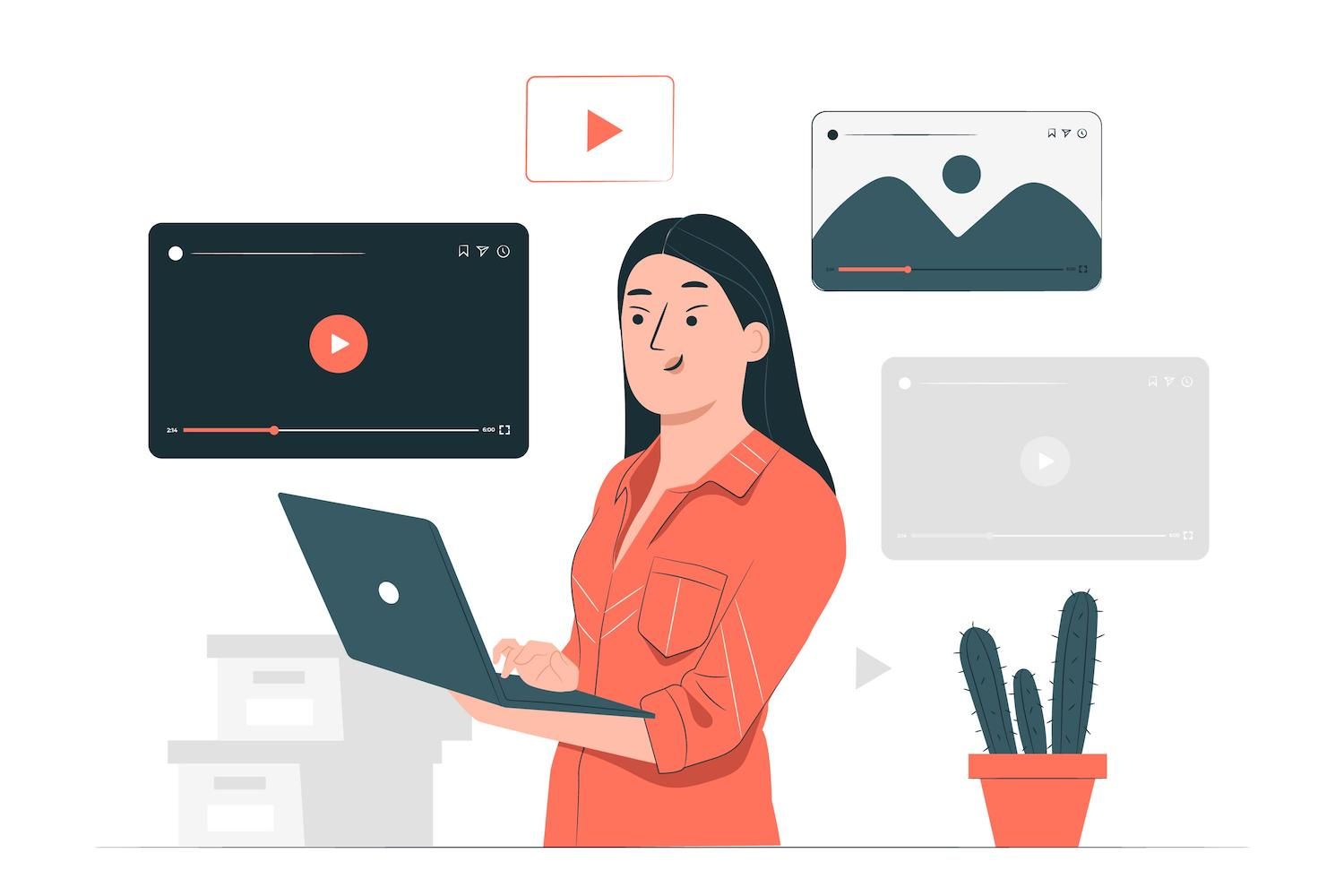Seven of the most important lessons from Self-Made Summit
Seven of the most important takeaways learned of Self-Made Summit
What is the best way for you to begin and develop an enterprise that is profitable? A large number of business owners as well as aspiring entrepreneurs gathered virtually on the 16th of June 20th, 2020 in the Self-Made Summit to find out.
The experts from our stellar line-up let us into their world by sharing their key to success as well as their most memorable moments. This is a brief overview of the best lessons in entrepreneurship learned at the inaugural virtual summit.
1. Be aware of your instincts, especially when facing rejection
Rejection hurts. Being underestimated hurts. When you're at your lowest moment, trust the voice inside of you, and believe it. Jamie Kern Lima spent a decade developing IT Cosmetics from the ground up. At the beginning her company barely made it through 2-3 orders per every day. Pitches to QVC, Sephora, and other stores were being rejected one after the other. Each time, Jamie wondered if she'd be able to stay in business.
"Every time I got a "no," I conducted an inner test," she said. Jamie was able to sit still and listen, and her intuition would tell her "You're meant to be on this particular path."
In a deeply memorable moment in a conversation with a private equity investor, her inner voice was heard loud and clear. Investor had made the decision not to invest following a rigorous due diligence process. His decision had nothing in connection with figures or data. His reasoning was, according to her memory: "I'm just not sure women will buy makeup from someone that looks exactly like you and is in line by your physique and weight."
Stunned, Jamie maintained her calm and believed in what her intuition was telling her. She was absolutely certain that she was right. "I believed it and knew it was true," she said.
In the end she proved him wrong when she sold IT Cosmetics to L'Oreal for $1.2 billion. Had she invested money in her company and it was the most successful investment in his firm's history.

2. Let your "why" guide your decisions
When you're agonizing over an important decision consider why you started your business at all in the first place. Any decision you make should be consistent with the mission and goals of your business -- no matter what the experts advise. This is exactly the principle Jamie discovered when she landed her first QVC spot and employed consultants that specialize in selling TV.
From Day 1, her aim was to ensure that women felt gorgeous, regardless of their age or skin challenges. Her goal was not to compete with other beauty brands with Photoshopped advertisements that set unrealistic standards. But according to her consultants they believed the only way to succeed was to follow the same pattern Young models with flawless skin.
Jamie contemplated for weeks before the live show she was torn between seeking advice from experts and going with her gut instincts and doing something completely different. She was not able to follow her gut instincts. But when she focused on her goal and the women she wanted to help, she realized exactly what she was required to do.
When Jamie made her debut QVC appearance, the product went on sale in just only 10 minutes. In the years since, Jamie has personally appeared on more than 1,000 live programs on QVC.
3. Make sure you spend your money on the things that matter the most
When you're first creating a company, every dollar is important. Do not drain your bank account through expenses such as expensive photography sessions, luxurious car rentals, or first class flights if you're unable to afford these. In this age of social media and a frenzied culture, entrepreneurs often become caught up in creating facades online. It's just the ego is, as per Jamie.
You should spend your money on most important aspects of your business, and be extremely disciplined with your expenses so as not to impact the quality of your products or operations. In the early days of IT Cosmetics, Jamie would often travel to pitch companies. She remembers scouring online for cheap economy flights and car rentals. She also remembers sharing hotel rooms at Motel 6.
"It's the little things which allow you to become cash flow positive," Jamie said. "Nobody talks about them. They're certainly not glamorous. However, they're vital."
4. "Just in time" learning outdoes "just in the event" learning
Entrepreneurs are naturally curious who enjoy learning. But the issue is that you are stuck in a rut, believing you can't begin a new venture as long as you've done one more thing (e.g. taking a course or purchase software, go to an event, or study a book, etc.). The common tendency is to learn new skills just in case you might have to use them later on.
A constant desire to know additional information, even if properly-intentioned, can lead to confusion and overwhelm, as per Mel Abraham, the founder of Thoughtpreneur Academy and Business Breakthrough Academy.
"We consume all this content but we don't ever become the creators of the course of our lives," Mel said.
He encourages people to shift their mindset to learning from "just in case" learning, to "just in time" learning. Focus on what you need to be able to have the greatest effect immediately. "What do you need now? Learn the subject. Go do it," he said.
Are you unsure of the areas that should be prioritized for your online company?
Here are the "bare bones" which Mel has identified:
- A traffic source
- you're working on a problem
- a means of converting potential customers into clients (e.g. an online webinar)
- an opportunity to present your product or service

5. Get laser focused on your path
The constant bombardment of advertisements and information online, entrepreneurs can easily get caught up. Maybe you're monitoring your competitors and trying to emulate them. Maybe you're constantly experimenting with innovative business models, new offers, and tech tools. Remember that any distractions you make can harm your business.
Jamie frequently told her IT Cosmetics team, "Our greatest threat is not our competitors. It's if we ever get lost in the competition and end up losing our secret recipe."
Tyler McCall, an Instagram business mentor, has remained focused on building his membership service despite the talk about high-end merchandise. One of the most common myths among online businesses is that you can't reach $1 million in revenue without selling a premium product.
Tyler ignored that and focused on establishing his membership Following to Fan Society, priced at 75 dollars per month. To date, the company has made more than $1.5 million in just two years.
"You can't achieve success and make your own path when you're considering the path that others have taken," he said.
Highlighting Oprah's massive success in daytime TV, Tyler pointed out that Oprah did not monitor her rivals like Phil Donahue Maury Povich or Ricki Lake. As the other TV shows indulged in trashy tv, Oprah stayed with the "live your life to the fullest" idea and continues to be among the top-rated daytime talk shows throughout American TV history. Oprah once said, Oprah has said in the past, "You can only run the race you choose to run."
6. Amplify what makes you different
Remember that people are looking for an individual who resembles you , and has your particular experiences. Based on Danielle Leslie, founder of Culture Add Labs and creator of Course from Scratch "What distinguishes you is what makes you valuable."
Danielle is able to grow her business to $10 million in revenue in less than four years. She's a big proponent of differentiating yourself in the market by telling your narrative and the things that make you distinct.
"Your benefits from your cultural background as well as all the obstacles that you've overcome throughout your life, talk about it every single one of them -- the challenges as well as the down sides, the upsides, the all of it. We want to hear everything," Danielle said. Because nobody else has the same story as you, no one else can give exactly what you have to offer. Because of this, your product is not an item that is a commodity.
7. Unblock yourself by focusing on the person that you're serving.
If business owners design their own marketing material, like sales pages, they often find themselves pondering how to close the sale. Brittany Darrington, Business strategist and co-founder of the Corporate Misfit Club, broke down a simple strategy for getting unstuck:
- Reconsider your position take a deep breath, shut your eyes and consider, "Who am I serving? What would our conversation be like if we were having coffee together?"
- Imagine your ideal customer talking about her issues.
- You should think about what you would say to this person, and then begin making your point from there.
She also recommends tackling your sales page piece by piece, rather than one large project. Think of each piece as a building block: the headline, your video and pain points, as well as solutions, social proof etc.
Are you unsure of how to transform your expertise or passion into an in-demand course?
Download our exclusive report "10 unusual online courses ideas in high demand right now"
